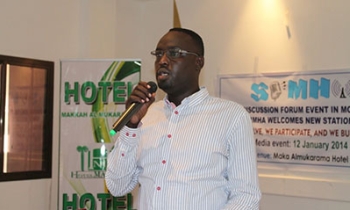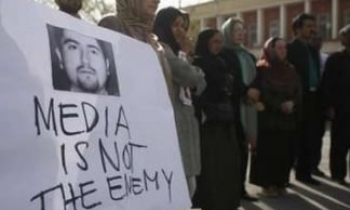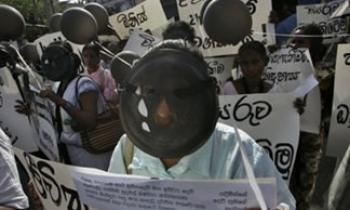Russian journalist Ivan Safronov, who fell to death from his apartment building window, had faced threats while reporting on a highly sensitive story that Russia planned to sell sophisticated missiles to Syria and Iran. Had Safronov’s story been right, it would have caused enormous embarrassment to President Vladimir Putin, who had assured Israel and the United States that the arms deal had been scrapped.

Kommersant, the independent business daily for which the journalist worked, reported that Safronov had recently told colleagues he was warned that he would face a criminal investigation for possibly revealing state secrets if he reported allegations that Russia had struck a deal to supply Iskander missiles to Syria. “Ivan Safronov said he was not going to write about it for a while because he was warned that it would create a huge international scandal and the FSB [Federal Security Service] would launch a criminal case on charges of breaching state secrets,†the newspaper said.
Pavel Felgenhaur, a leading commentator on Russian military affairs, told a news agency, “If confirmed, this story would have sharply aggravated relations between Russia and Israel and the US. People have been killed for less.â€
Safronov fell out of the staircase window between the fourth and the fifth floors of his apartment building around 4 pm on Friday. Two university students living in a nearby building heard a thud, saw Safronov on the ground with the window open above, and called emergency workers. The journalist was alive immediately after the fall, but at least a half hour passed before help arrived, Kommersant said.
Prosecutors are considering suicide to be likely but have not yet completed their investigation, the daily reported. Safronov’s colleagues, however, felt suicide was unlikely. “Everyone who knew him would rule out suicide as a possibility,†Dmitry Kamyshev, Safronov’s editor, told the Committee to Protect Journalists (CPJ). “It was against his nature.†Kamyshev said the last time he spoke to Safronov, just a few days before his death, the journalist sounded “his usual self†and in good spirits.
Safronov had returned in February from a reporting trip to Abu Dhabi, United Arab Emirates, where he covered the annual International Defence Exhibition and Conference, a gathering of defence manufacturers. He was due back at work this week, his editor said.
A former colonel in the Russian Space Forces, Safronov, 51, wrote about military and space issues for Kommersant. Most recently, he had written about changes in the defence leadership and problems in military training that had led to the deaths of young soldiers, Kamyshev told CPJ. He also wrote about defence technology and military testing failures that often went unacknowledged and unreported by the army.
In December 2006, Safronov wrote about the third consecutive launch failure of the Bulava intercontinental ballistic missile. The military did not acknowledge the failure, the Associated Press reported. Since he started working for Kommersant in 1997, Safronov had been questioned a number of times by the Federal Security Services (FSB) on suspicion of publishing state secrets but was never charged, AP said.
“For some reason it is those journalists who are disliked by authorities that die in our country,†popular daily Moskovsky Komsomolets editorialised. “Safronov was one of those. He knew much about the real state of affairs in the army and the defence, and he wrote about that. .... He wrote objectively and to the point, and that sharply irritated authorities.â€
The International Federation of Journalists (IFJ) has established an international commission of inquiry to investigate the killings of journalists in Russia in the last 20 years. IFJ will hold its world congress in Moscow in May where the fight against impunity for journalists’ killers will be one of the main topics of discussion.
Russia is among the most dangerous countries for journalists and is plagued by attacks on reporters who seek to expose official corruption and other abuses. The problem was highlighted by the October killing of Anna Politkovskaya, an investigative reporter and a harsh critic of human rights abuses in Chechnya. CPJ said in January that 44 Russian journalists have been killed since 1992, making Russia the third-deadliest country for journalists after Iraq and Algeria during that time. Thirteen journalists have been killed in contract-style murders since Putin took office in 2000, it said.









